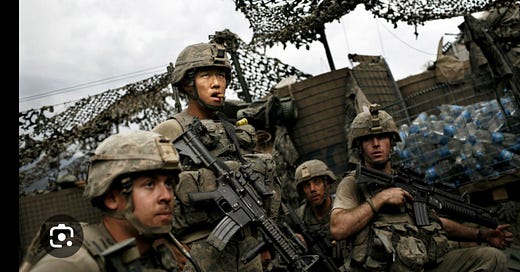Sebastian Junger co-directed two documentary films, “Restrepo” and “Korengal,” about a platoon of American soldiers deployed to a tiny, utterly primitive and exceedingly dangerous outpost in Afghanistan’s Korengal Valley. Both films were riveting meditations on the experience of war. Grinding boredom gives way to bowel-emptying fear, followed sometimes by episodes of nearly psychedelic blood-lust and the frankly sexual pleasure of unleashing a .50-caliber machine gun on enemies who are doing the same to you. We see the calming routines of mending one’s kit in the interludes; the improvised forms of social authority that emerge in a place far beyond the reach of law; the rude affection and deep love among brothers in arms. Both films have a timeless quality to them, surely because of Junger’s tact as a journalist and his fundamental sympathy with his subjects.
What the films depict is not the high-tech warfare of remote control that affirms our clean self-image, but the recalcitrant realities of killing. We see both the vital force and the depravities of a cell of men released from the neutering moral regulation of American society. That society has a mission for them to do, but it cannot avow the means by which it is to be accomplished and must avert its gaze from the appalling maleness of it all.
How do you return home from such an experience? This is the question Junger asks in his book Tribe which has the subtitle “On Homecoming and Belonging.” In a pre-modern tribe, Junger points out — or indeed a modern society such as Israel, in which the burden of defense is widely shared and never remote from the collective experience — war has a shared social meaning. But in a cosmopolitan society such as our own, far removed from the scene of battle, the human qualities demanded and cultivated by war are fundamentally at odds with our public principles. We tend to think the “take care of your own” mentality of the tribe emanates from a different stage of human development, part of an us-versus-them mindset that we pride ourselves on having left behind in the forward march of reason. What the French scholar Pierre Manent said of European enlightened opinion could be said of its American counterpart: We believe “we have become so universally human that we have no enemies.” And yet we rain down more death around the world than just about anybody.
Keep reading with a 7-day free trial
Subscribe to Archedelia to keep reading this post and get 7 days of free access to the full post archives.




